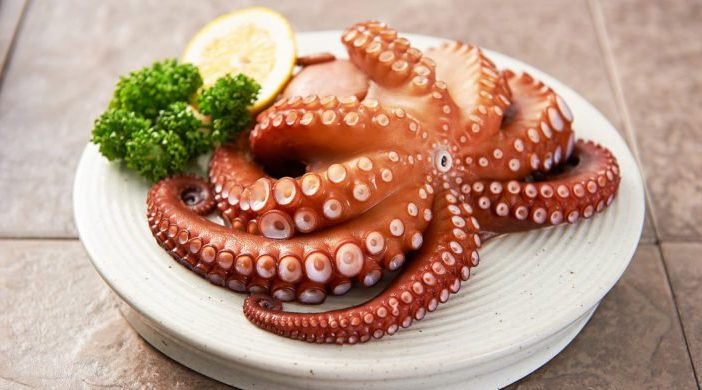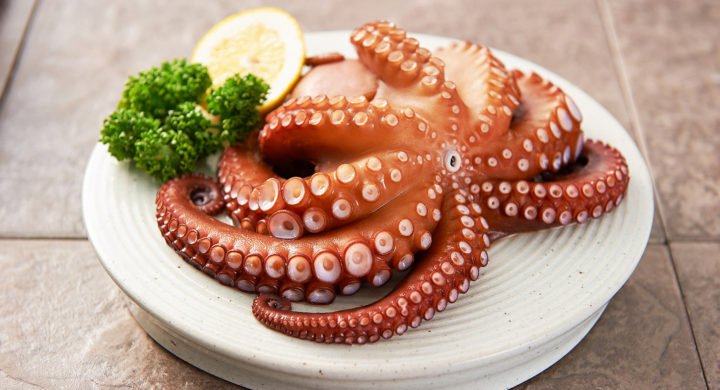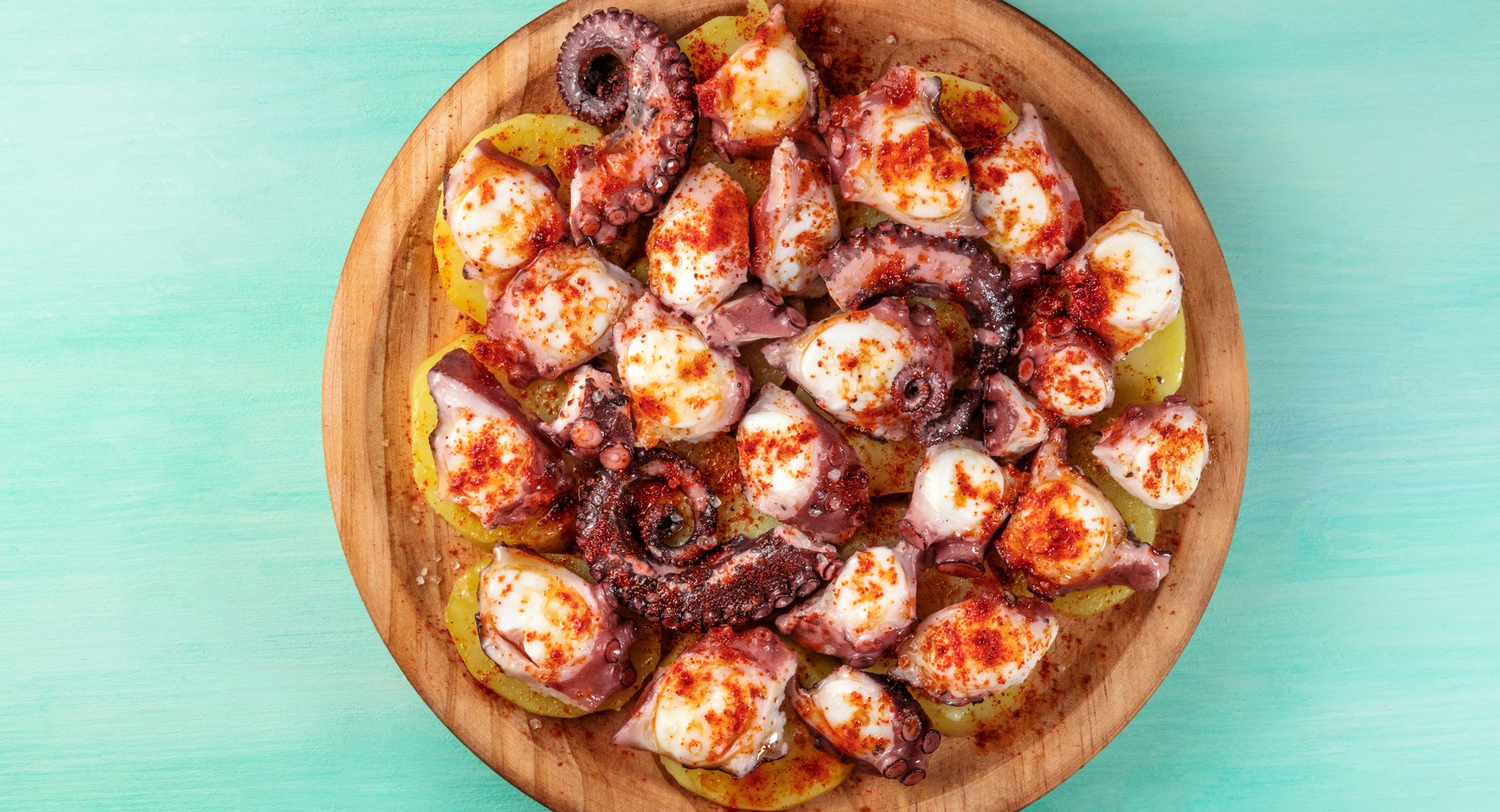Undercurrent News
By Louis Harkell
“It was an El Dorado,” said Pedro Cunha, as he recounted a bubble in prices, but he wasn’t talking about a mythical land of gold.
Nor lithium, an essential mineral used in batteries. Cunha was talking about octopus.
Those who watched 2018’s BBC series Blue Planet 2 were left awe-inspired by the scene in which an octopus foils a shark attack. Last year in global seafood markets, octopus inspired a different range of emotions thanks to the rollercoaster in prices for tentacles and sliced chunks.
“It was a crazy thing,” said Cunha, who is purchasing director at Portuguese seafood firm Brasmar, and referred to by colleagues as “octoman”. “We had octopus being sold at €18 per kilogram [at wholesale]. The T1 grade [whole octopus, four kilograms plus] from Morocco — frozen on board, a good quality product — reached €18 plus.”
To put that in perspective, loligo squid, considered by some to be a higher quality product, costs €3-5/kg at seafood markets in the Med.
“I’d never seen prices go so high,” a trader in Morocco who wished to be quoted unnamed told Undercurrent at the Seafood Expo Global in Brussels, Belgium. “It was like paying the price of a Lamborghini for a Fiat.”
Now, though, companies who bought octopus at the market’s peak are thought to be counting the cost after prices started to nose-dive last summer.
Latest prices for Moroccan T-6 grade, 0.8-1.2kg-sized octopus, are €7.90-€8.00/kg, frozen-on-board, the trader said during the Brussels show, down €4-5.00/kg from last July.
“Losses at companies which trade solely in octopus could run into millions of euros,” the trader said.
“Some companies were buying 20,000 kilos at a time,” said Cunha. “If they only trade this product and they have to recognize these losses, it will be a catastrophe, for sure.”
Hot tentacles
The surge in prices of octopus, or pulpo as it is known in Spanish, has been well-documented.
A confluence of factors, including limited supply in Morocco due to stricter fisheries management; better economic conditions in key markets such as Spain and Portugal; and octopus’ growing popularity in new markets, such as the US, appear to have been behind the price boom.
In New York, chefs in high-end restaurants helped turn octopus from a creature which made the toes curl into a trendy and popular dish.
But among industry insiders the most often used word to describe prices is “crazy”. “Some believed prices could reach €20/kg, they believed deeply in that. But that’s crazy,” said Cunha. And what goes up must come down.
Cunha notes that in Mediterranean countries — where seafood draws tourists and locals alike, and octopus is often served in chunks grilled and swimming in olive oil with little more than a light dusting of paprika powder — a restaurant menu price of a plate of octopus fairly closely tracks prices paid to a fisher at the harbor.
Unsurprisingly, customers had little appetite to pay record-high prices for what is considered a pretty standard seafood dish.
“People love it here [in Portugal] because it’s part of our country’s food culture. Near the coast, they’re used to eating it every week or every month. But it became unaffordable,” said Cunha.
He said when importers began sourcing cheaper octopus from other countries besides main producers Morocco and Mauritania customers were unimpressed.
“We tried octopus from 12 different origins we had never tried before, including product from Thailand, China, Yemen. But customers immediately noticed the difference; they said it wasn’t as good quality.” Instead, restaurants simply cut octopus from menus, which he said started in January 2018.
He reckons 60-70% of restaurants in Portugal no longer serve octopus.
“In Portugal, Spain, Italy, Greece, mostly the Mediterranean countries, these countries suffered hugely with these prices.”
Counting the cost
Octopus accounts for around 25% of sales at Brasmar, which had revenues of about €185m in 2018. In a typical year, it sells 2,000 metric tons of octopus products.
But Cunha said when prices were high Brasmar acted cautiously, buying only two months’ worth of stock at a time, which helped cushion the firm when prices fell.
By comparison, other companies were less conservative, he said.
“I believe our competitors, especially the ones that only sell octopus, had their warehouses full of very expensive octopus. When you consider prices have decreased €3-4 per kilogram, it’s going to have a huge impact. The ones that have liquidity and don’t have to sell, they are trying to buy new product and achieve the average price. But others are under more pressure [to sell].”
He reckons those companies which did not register losses last year would do so in the current accounting year.
He blames the short-sighted ambition of a handful of companies for the “mess” the industry now finds itself in, with larger-sized firms particularly at fault because they tend to guide the market.
“They set the price, so they have a big responsibility,” he said.
But the Moroccan trader said firms which only trade octopus have no choice but to keep buying, regardless of prices. “What else can they do? They have to buy to work.”
Regaining the trust of customers is now the main task of those like Cunha after a drop in sales. “We have a huge, huge job to regain old customers,” he said.
“But we will get back there, if the industry doesn’t make crazy decisions like it did in the last year. Octopus is a very good product; it’s healthy, has no bones, and is easy to use. We have to realize we cannot gain today, we are not here to sell octopus for just one year, we are here for the future.”
He reckons it could take more than a year for sales to return to normal volumes.
At the Brussels show, the Morocco-based trader said there had been little interest in octopus from new customers during the event.
“They have lost confidence in octopus. It’s too dangerous,” he said.
He noted how a customer in the US he sold a container of octopus to at the 2018 Seafood Expo North America in Boston still had not sold the contents more than a year later.
“He still has most of the octopus in the container,” he claimed.
Despite the lower prices, Spain is also not buying like before, he said. He added currently Mauritania is offering octopus about one dollar per kilogram cheaper than Morocco.
Contact the author louis.harkell@undercurrentnews.com









